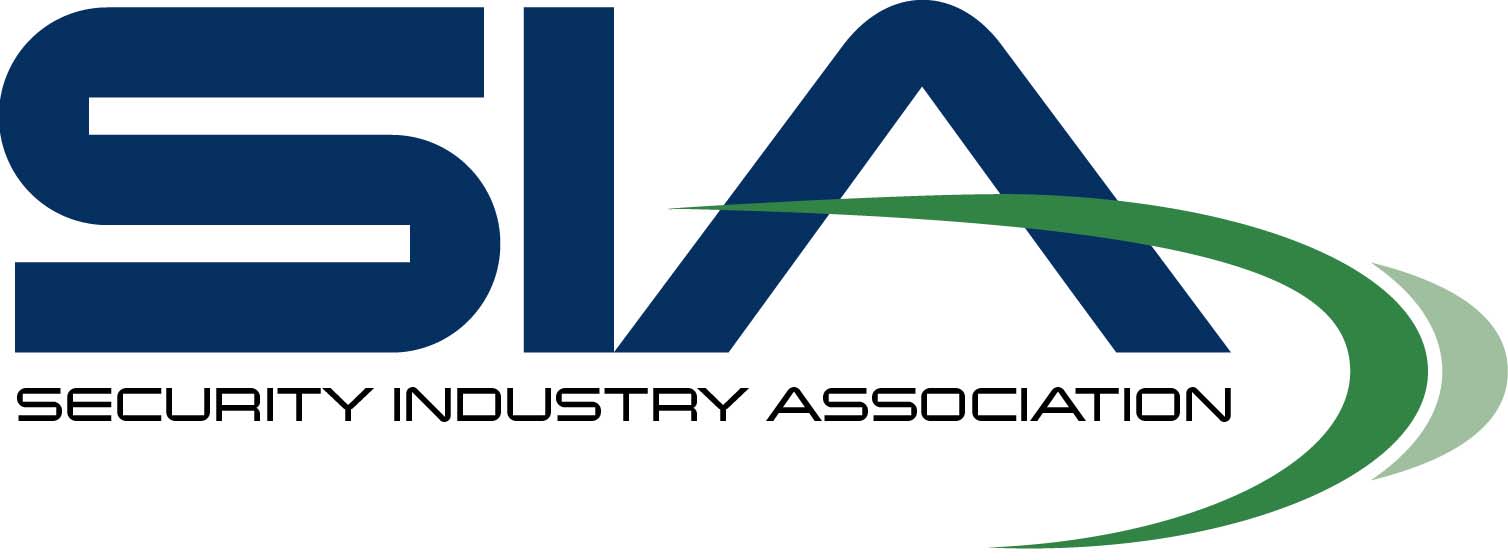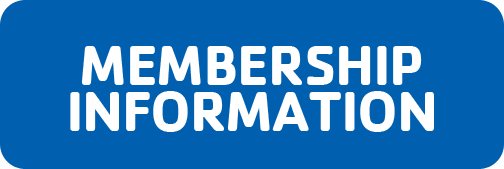Over the last decade, False Claims Act (“FCA”) litigation has exploded, and actions asserting new theories of liability are resulting in increasingly large recoveries. Last year the U.S. Department of Justice (DOJ) announced that it had recovered $3.8 billion under the federal FCA in FY 2013. From all appearances FY 2014 promises to be another “banner year for civil fraud recoveries,” and the DOJ has already put up impressive numbers, particularly against pharmaceutical and medical device companies, including a massive $2.2 billion settlement with Johnson & Johnson, as well as settlements with Endo Health Solutions Inc. ($192.7 million), Halifax Hospital Medical Center ($85 million), and Amedisys, Inc. ($150 million).
While the DOJ continues to vigorously pursue FCA cases against companies in the health care and other sectors, cash-strapped states are now following suit. State Attorneys General (AGs) have increasingly pursued novel and creative FCA actions, as have private plaintiffs, who are authorized by qui tam provisions to stand in the shoes of states to sue and receive part of any recovery. A driver of this action was the Deficit Reduction Act (DRA) of 2005, which authorized states to receive, in addition to their own recoveries, 10 percent of the federal government’s share of recovered Medicaid funds if their FCAs are at least as robust as the federal FCA. As a result, since 2005 nearly a dozen states have either enacted false claims statutes or have amended existing statutes to make them equally or more robust than the federal FCA, including incorporating qui tam provisions and broadening the circumstances under which companies can be found liable for violations.
For example, late last year, in response to the DRA, New York state amended its FCA (New York State Finance Law § 187, et seq. (NY FCA)), to bring its false claims law more in line with the federal FCA. The New York statute now includes a “reverse false claims” provision that imposes liability as broadly as the federal FCA, providing that a person may be held liable for violating the NY FCA if that person “[k]nowingly conceals or knowingly and improperly avoids or decreases an obligation to pay or transmit money or property to the state or a local government, or conspires to do the same….” (NY FCA § 189(1)(h)). The New York amendments also allow the state, as intervenor in a qui tam case, to relate back to the qui tam plaintiff’s filing date for statute of limitations purposes, expanding the period for which the state can seek recoveries. In addition, the law provides attorneys’ fees for successful qui tam plaintiffs, incentivizing the plaintiff’s bar to partner with the state or pursue their own cases under the NY FCA.
Recent developments in California also have made California False Claims Act (CFCA) cases more likely. In October of last year, California Governor (and former AG) Jerry Brown signed into law amendments to California’s general whistleblower statute (Cal. Labor Code § 1102.5) extending already existing whistleblower protections to employees who report illegal behavior internally to supervisors or those responsible for compliance. The amendments also imposed liability on any person working on an employer’s behalf who retaliates against an employee who engages in protected whistleblowing activity. In addition, a California appellate court, in San Francisco United School District ex. rel. Contreras v. First Student, Inc., No. A136986, Cal. Court App. (1st Dist. Mar. 11, 2014), recently expanded liability under the CFCA by approving the “implied certification” theory, holding that “a vendor impliedly certifies compliance with express contractual requirements when it bills a public agency for providing goods or services.” As a result, government contractors that do business with the state of California are now exposed to CFCA liability if they knowingly submit an invoice while in breach of a material contract term, whether or not they expressly certified compliance with material contract terms.
California and New York are just two high-profile examples of a national trend. Florida AG Pam Bondi worked with the legislature to significantly amend the Florida FCA last year to expand its scope and provide new subpoena powers and penalties. In Vermont, AG Bill Sorrell worked with several state senators to introduce a new FCA patterned on the federal act, after the state collected more than $23.5 million since 2010 through cooperative work with the DOJ on Medicaid fraud cases.
Because many states are facing substantial budget pressure, FCA activity, in particular Medicaid fraud cases, are likely to substantially increase in 2014 and beyond. In January Texas AG Greg Abbott announced that Hi-Tech Pharmacal Co. will pay $25 million to settle claims that it submitted inflated pricing information for certain prescription drugs from 1995 to 2013. In April Texas settled a state FCA lawsuit against HEB Grocery Co. for $12 million, settling claims that HEB overcharged the Texas Medicaid program for prescription drugs. Florida also reached a $7 million agreement recently with All Children’s Health System to settle allegations that the hospital violated the federal and Florida’s FCA by submitting illegal Medicaid claims.
FCA cases are not limited to health care. New York AG Eric Schneiderman, who as a state legislator sponsored a substantial 2010 expansion of the NY FCA, has pursued a ground-breaking FCA reverse false claims case against Sprint Nextel Corporation for allegedly under-collecting and underpaying more than $100 million in New York state and local sales taxes. In late February a New York appellate court upheld a lower court’s decision denying Sprint’s motion to dismiss the case. FCA cases have also recently been brought against or settled with technology providers and construction firms for providing allegedly defective products and services or inflating their billing, energy companies for underpaying royalties, and mortgage lenders for alleged false applications for HUD-sponsored insurance and federal loan financing.
State FCAs have also become fertile ground for creative plaintiff’s attorneys. Prominent plaintiff’s firms have long cultivated relationships with AGs as they sought to represent the states in civil lawsuits such as the tobacco litigations of the 1990s and more recent consumer protection and public nuisance suits against the pharmaceutical and other industries. Plaintiff’s lawyers have also taken notice of the potential for large automatic recoveries in qui tam suits. 647 federal qui tam suits were filed by private plaintiffs in 2012 alone, compared to only 30 in 1987. This upward trend is likely to continue as plaintiffs increasingly assert multiple state FCA claims alongside federal claims and attempt to work alongside AGs in pursuing such cases.
There are steps companies can take to reduce their potential exposure to FCA actions brought by the federal government, AGs, and/or qui tam plaintiffs. Any company that provides goods or services to the government, or even subcontracts to do so, should do the following:
(1) Create and update its compliance program to ensure current compliance with all applicable legal requirements and to flag potential problems early before they give rise to an FCA claim.
(2) Establish appropriate and continuous training programs that inform employees of key legal obligations, and encourage employees to bring problems to the attention of supervisors and compliance officers.
(3) Periodically audit business activities to ensure those activities conform to the company’s compliance program by conducting interviews, surveying employees, and providing employees with opportunities to provide feedback regarding potential wrongdoing.
(4) Fully and seriously investigate all allegations of impropriety, no matter how unlikely, and regardless of the whistleblower’s credibility or motivations.
(5) Carefully consider the ramifications of strategies that impact taxes or royalties remitted to the government and whether such plans might become the basis for reverse FCA claims.
More broadly, companies involved in supplying goods or services paid for by the government should familiarize themselves with, and even develop relationships with the DOJ authorities and AGs who are authorized to bring FCA cases or oversee qui tam litigations. Given the increasingly innovative ways FCA claims are asserted, companies cannot risk hiding their heads in the sand regarding their potential exposure. Knowing the government authorities responsible for such cases can provide critical insight to understanding their priorities, their complex relationships with qui tam plaintiffs, and the future directions and likely developments in this increasingly important area of the law.
Contributing Authors:
 Merle DeLancey primarily represents healthcare clients involved in a broad spectrum of government contracting issues and litigation. He also formulates strategies for expanding contracting opportunities using the General Services Administration (GSA) and Department of Veterans Affairs (DVA), Federal Supply Schedules (FSS), and other government-wide acquisition and indefinite delivery, indefinite quantity contract vehicles. Merle also has substantial experience in complex, multidistrict litigation in federal district courts throughout the United States.
Merle DeLancey primarily represents healthcare clients involved in a broad spectrum of government contracting issues and litigation. He also formulates strategies for expanding contracting opportunities using the General Services Administration (GSA) and Department of Veterans Affairs (DVA), Federal Supply Schedules (FSS), and other government-wide acquisition and indefinite delivery, indefinite quantity contract vehicles. Merle also has substantial experience in complex, multidistrict litigation in federal district courts throughout the United States.
 Bernard Nash joined Dickstein Shapiro in 1988 and leads the firm’s State Attorneys General Practice, where he represents clients in complex state and federal legal and legislative matters. Bernie’s work typically involves cases of first impression, matters having public policy implications and/or a governmental interest, and complex litigation. He routinely counsels major private sector clients on a wide range of matters involving State Attorneys General and also has represented states in significant policy disputes. According to Chambers USA: America’s Leading Lawyers for Business, Bernie is “the leading practitioner in the country” who has “cornered the market” in representing clients before State Attorneys General and is known as “the godfather of State Attorney General work.”
Bernard Nash joined Dickstein Shapiro in 1988 and leads the firm’s State Attorneys General Practice, where he represents clients in complex state and federal legal and legislative matters. Bernie’s work typically involves cases of first impression, matters having public policy implications and/or a governmental interest, and complex litigation. He routinely counsels major private sector clients on a wide range of matters involving State Attorneys General and also has represented states in significant policy disputes. According to Chambers USA: America’s Leading Lawyers for Business, Bernie is “the leading practitioner in the country” who has “cornered the market” in representing clients before State Attorneys General and is known as “the godfather of State Attorney General work.”
 Andrew Smith is an associate in Dickstein Shapiro’s Government Contracts Practice. Andrew focuses on complex civil litigation matters relating to antitrust, unfair trade, mass torts, product liability, and general commercial law. He also has represented and counseled clients in government investigations and government contract matters, including False Claims Act investigations and litigation, and claims and bid protests before the U.S. Government Accountability Office. Additionally, Andrew has been actively involved in providing pro bono legal research assistance to the American Antitrust Institute.
Andrew Smith is an associate in Dickstein Shapiro’s Government Contracts Practice. Andrew focuses on complex civil litigation matters relating to antitrust, unfair trade, mass torts, product liability, and general commercial law. He also has represented and counseled clients in government investigations and government contract matters, including False Claims Act investigations and litigation, and claims and bid protests before the U.S. Government Accountability Office. Additionally, Andrew has been actively involved in providing pro bono legal research assistance to the American Antitrust Institute.
 Christopher Allen joined Dickstein Shapiro in 2007. Chris is an associate in the State Attorneys General Practice. He represents clients primarily in connection with state government investigations and complex public policy issues, including outreach, negotiations, and litigations involving consumer protection, pharmaceutical products, data breach, information security compliance, antitrust, and environmental issues.
Christopher Allen joined Dickstein Shapiro in 2007. Chris is an associate in the State Attorneys General Practice. He represents clients primarily in connection with state government investigations and complex public policy issues, including outreach, negotiations, and litigations involving consumer protection, pharmaceutical products, data breach, information security compliance, antitrust, and environmental issues.


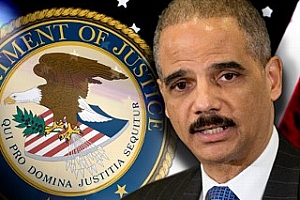
 Merle DeLancey primarily represents healthcare clients involved in a broad spectrum of government contracting issues and litigation. He also formulates strategies for expanding contracting opportunities using the General Services Administration (GSA) and Department of Veterans Affairs (DVA), Federal Supply Schedules (FSS), and other government-wide acquisition and indefinite delivery, indefinite quantity contract vehicles. Merle also has substantial experience in complex, multidistrict litigation in federal district courts throughout the United States.
Merle DeLancey primarily represents healthcare clients involved in a broad spectrum of government contracting issues and litigation. He also formulates strategies for expanding contracting opportunities using the General Services Administration (GSA) and Department of Veterans Affairs (DVA), Federal Supply Schedules (FSS), and other government-wide acquisition and indefinite delivery, indefinite quantity contract vehicles. Merle also has substantial experience in complex, multidistrict litigation in federal district courts throughout the United States. Bernard Nash joined Dickstein Shapiro in 1988 and leads the firm’s State Attorneys General Practice, where he represents clients in complex state and federal legal and legislative matters. Bernie’s work typically involves cases of first impression, matters having public policy implications and/or a governmental interest, and complex litigation. He routinely counsels major private sector clients on a wide range of matters involving State Attorneys General and also has represented states in significant policy disputes. According to Chambers USA: America’s Leading Lawyers for Business, Bernie is “the leading practitioner in the country” who has “cornered the market” in representing clients before State Attorneys General and is known as “the godfather of State Attorney General work.”
Bernard Nash joined Dickstein Shapiro in 1988 and leads the firm’s State Attorneys General Practice, where he represents clients in complex state and federal legal and legislative matters. Bernie’s work typically involves cases of first impression, matters having public policy implications and/or a governmental interest, and complex litigation. He routinely counsels major private sector clients on a wide range of matters involving State Attorneys General and also has represented states in significant policy disputes. According to Chambers USA: America’s Leading Lawyers for Business, Bernie is “the leading practitioner in the country” who has “cornered the market” in representing clients before State Attorneys General and is known as “the godfather of State Attorney General work.” Andrew Smith is an associate in Dickstein Shapiro’s Government Contracts Practice. Andrew focuses on complex civil litigation matters relating to antitrust, unfair trade, mass torts, product liability, and general commercial law. He also has represented and counseled clients in government investigations and government contract matters, including False Claims Act investigations and litigation, and claims and bid protests before the U.S. Government Accountability Office. Additionally, Andrew has been actively involved in providing pro bono legal research assistance to the American Antitrust Institute.
Andrew Smith is an associate in Dickstein Shapiro’s Government Contracts Practice. Andrew focuses on complex civil litigation matters relating to antitrust, unfair trade, mass torts, product liability, and general commercial law. He also has represented and counseled clients in government investigations and government contract matters, including False Claims Act investigations and litigation, and claims and bid protests before the U.S. Government Accountability Office. Additionally, Andrew has been actively involved in providing pro bono legal research assistance to the American Antitrust Institute. Christopher Allen joined Dickstein Shapiro in 2007. Chris is an associate in the State Attorneys General Practice. He represents clients primarily in connection with state government investigations and complex public policy issues, including outreach, negotiations, and litigations involving consumer protection, pharmaceutical products, data breach, information security compliance, antitrust, and environmental issues.
Christopher Allen joined Dickstein Shapiro in 2007. Chris is an associate in the State Attorneys General Practice. He represents clients primarily in connection with state government investigations and complex public policy issues, including outreach, negotiations, and litigations involving consumer protection, pharmaceutical products, data breach, information security compliance, antitrust, and environmental issues.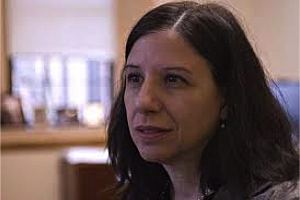

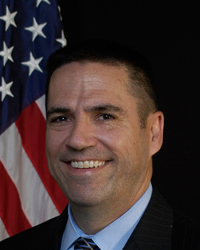

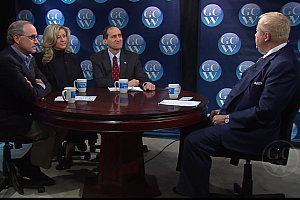
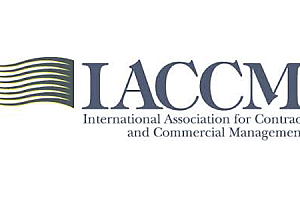
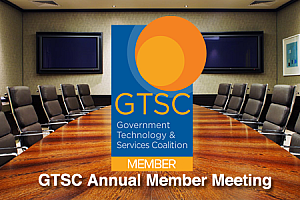

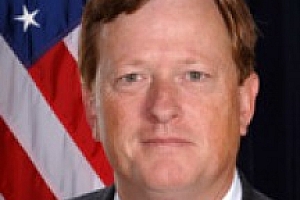
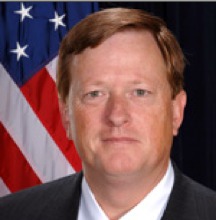 Prior to this position, Mr. McCormack served in a variety of positions at DHS. From 2005 to 2012, he served as the CIO for the U.S. Immigration and Customs Enforcement. He served at Customs and Border Protection as Acting Director of Infrastructure Services Division from 2004 to 2005, Director of Architecture and Engineering from 2002 to 2003, and Director of Systems Engineering from 1999 to 2002. Before joining the federal government, he served at various private sector companies including MCI and Ford Aerospace. He received an M.B.A. from the Smith School of Business at the University of Maryland.
Prior to this position, Mr. McCormack served in a variety of positions at DHS. From 2005 to 2012, he served as the CIO for the U.S. Immigration and Customs Enforcement. He served at Customs and Border Protection as Acting Director of Infrastructure Services Division from 2004 to 2005, Director of Architecture and Engineering from 2002 to 2003, and Director of Systems Engineering from 1999 to 2002. Before joining the federal government, he served at various private sector companies including MCI and Ford Aerospace. He received an M.B.A. from the Smith School of Business at the University of Maryland.
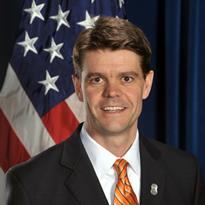 Federal Small Business Champions of the Year Award: John Morton, former Director, U.S. Immigration and Customs Enforcement & Jonathan Porter, Chief of Staff, U.S. Immigration and Customs Enforcement
Federal Small Business Champions of the Year Award: John Morton, former Director, U.S. Immigration and Customs Enforcement & Jonathan Porter, Chief of Staff, U.S. Immigration and Customs Enforcement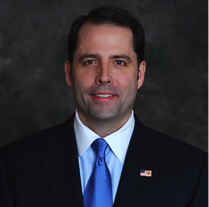 Market Maven of the Year Award: Chad C. Sweet, Co-Founder & CEO, The Chertoff Group
Market Maven of the Year Award: Chad C. Sweet, Co-Founder & CEO, The Chertoff Group Strategic Partner of the Year Award: Brian E. Finch, Partner, Global Security Practice, Dickstein Shapiro LLP
Strategic Partner of the Year Award: Brian E. Finch, Partner, Global Security Practice, Dickstein Shapiro LLP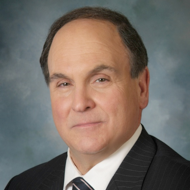 Strategic Advisor of the Year Award: Bill Carroll, Senior Partner, Strike Force Consulting
Strategic Advisor of the Year Award: Bill Carroll, Senior Partner, Strike Force Consulting
 Mentor of the Year Award: TASC & Mike Kelly, Vice President, Business Development, Civil and Infrastructure Security Group, TASC
Mentor of the Year Award: TASC & Mike Kelly, Vice President, Business Development, Civil and Infrastructure Security Group, TASC
